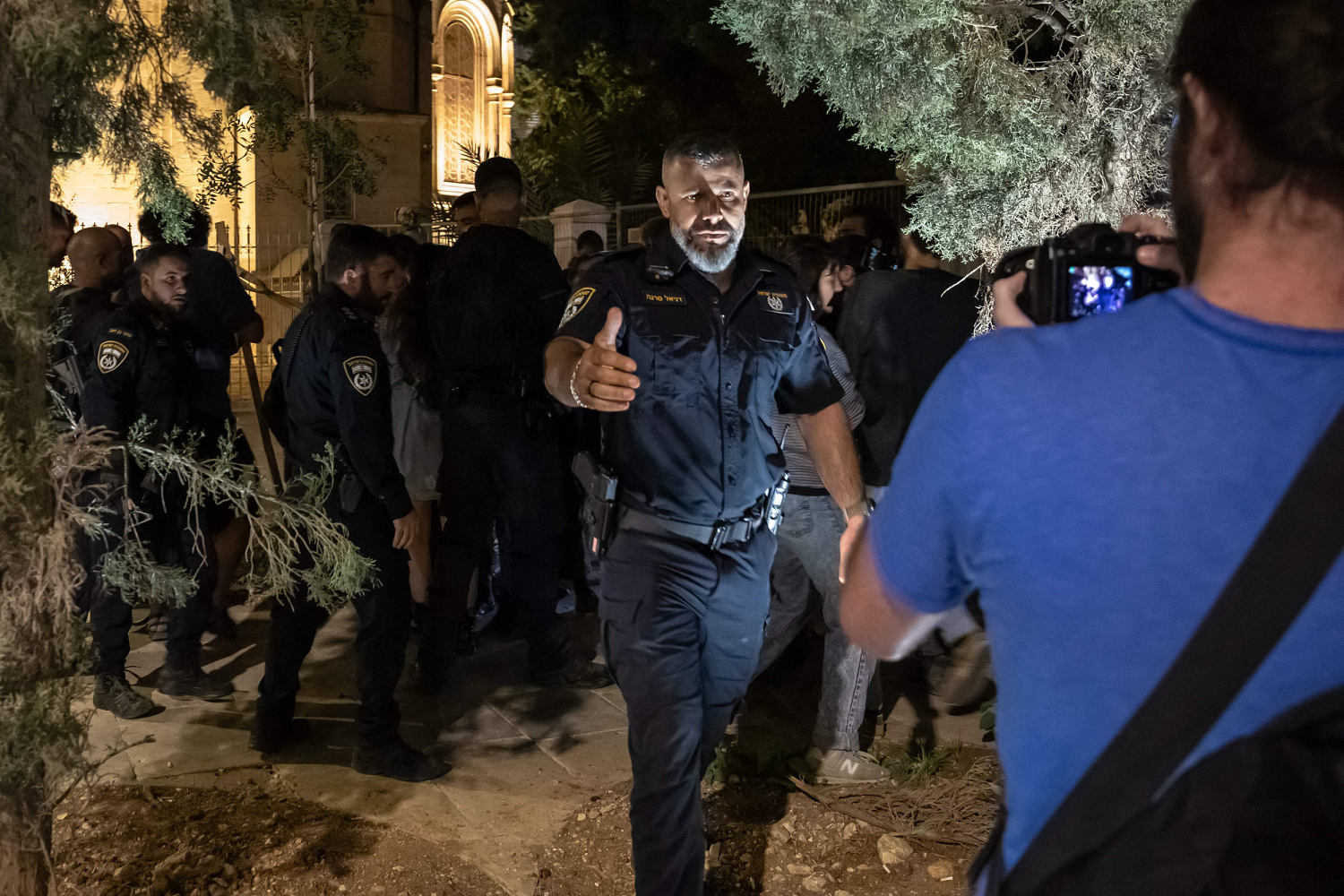[ad_1]

TEL AVIV — Palestinian journalists working in Israel say they have faced increased intimidation and harassment since Hamas’ attacks.
Israeli authorities have cracked down on broadcasts, reports and social media posts that they consider to be a threat to national security or in support of terror organizations since Hamas’ Oct. 7 assault. Press freedom and human rights groups say the approach is stifling speech and freedom of the media.
Dalia Nammari, a journalist with Russia Today, said she was accosted by armed police as she tried to file a live report in southern Israel on Oct. 16. She and her camera crew had stopped by the side of the road in an agricultural area of no apparent military importance, Nammari said.
“One police car stopped, took our IDs. … Soon, another military police force came, six or seven armed men with rifles, live bullets and ammunition. They surrounded me and the cameraman,” she told NBC News.
Nammari said she tried to call a police spokesman but was told to put her phone away.
“One soldier had his finger on the trigger and told me not to talk. … For the first time in my 14 years of journalism, I felt a direct threat to my life,” she said.
The police left after checking their credentials, which took around 10 minutes, and warned that Nammari and her cameraman would face arrest if found in the area again, she said.
Israeli police did not immediately respond to an NBC News query about the incident.
Palestinian journalists from several other outlets, including Sky News Arabia and the BBC, have similarly reported facing pressure from Israeli officials.
According to the BBC, one of the outlet’s Arabic crews was assaulted and held at gunpoint by Israeli police on Oct. 12.
Israeli police told the BBC in a statement that the officers had stopped and searched a “suspicious vehicle” and its occupants, and that “if there is a claim for deviation from protocol one should contact the relevant authorities.”
Several Israeli leaders have openly shown support for the suppression of some Palestinian journalists’ work. In a post on X on Thursday, Knesset member Danny Danon said Israel would “hunt down” Palestinian photojournalists who “arrived together with the terrorists” on Oct. 7. The statement came after the pro-Israel media advocacy group Honest Reporting questioned whether some photographers had prior knowledge of the Oct. 7 attacks and coordinated coverage with Hamas.
However, the media outlets that had hired the photojournalists strongly rejected the claim. The Associated Press and Reuters each said the photos they had purchased from freelancers were taken well after the start of Hamas’ attack. And The New York Times said Honest Reporting’s accusation was “untrue and outrageous” and put “journalists on the ground in Israel and Gaza at risk.”
Honest Reporting’s executive director later told Reuters that the group was just asking questions, and that those responses were adequate and a relief. The Associated Press and CNN have since cut ties with one of the photojournalists; Honest Reporting posted a picture of that photographer receiving a kiss from a Hamas leader.
Earlier in the war, Israeli media reported that the country’s government approved legislation that allows it to temporarily shut down foreign news channels deemed to threaten national security.
Last month, reports from Reuters, the Times of Israel and others suggested that Israel’s communications minister, Shlomo Karhi, planned to target the news network Al Jazeera, but no decision has been made about whether to shutter the outlet’s operation in Israel.
The Israeli government has not yet responded to an NBC request for clarification on that possibility.
[ad_2]
Source link
